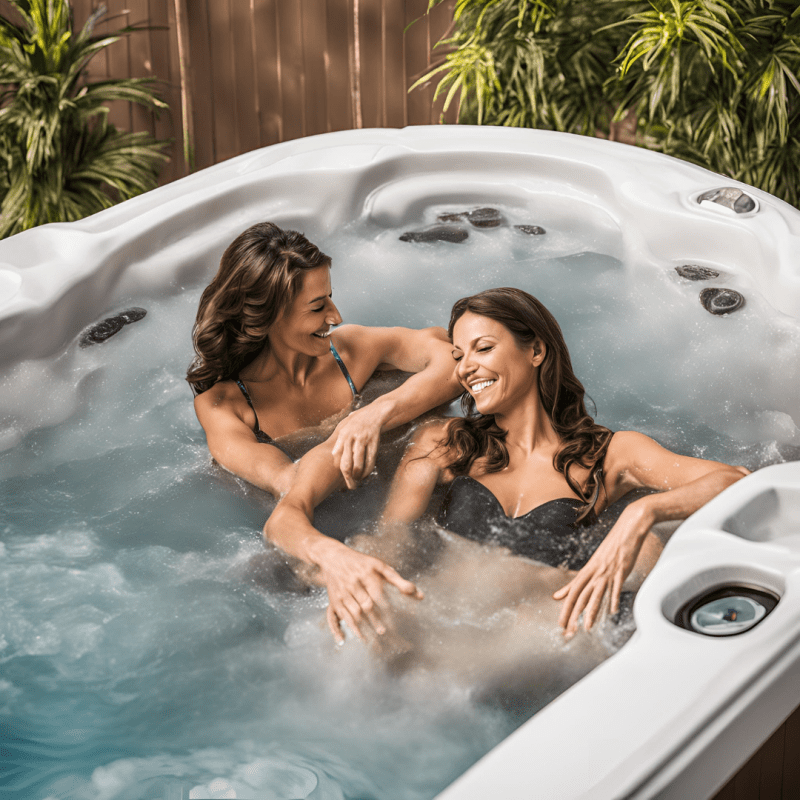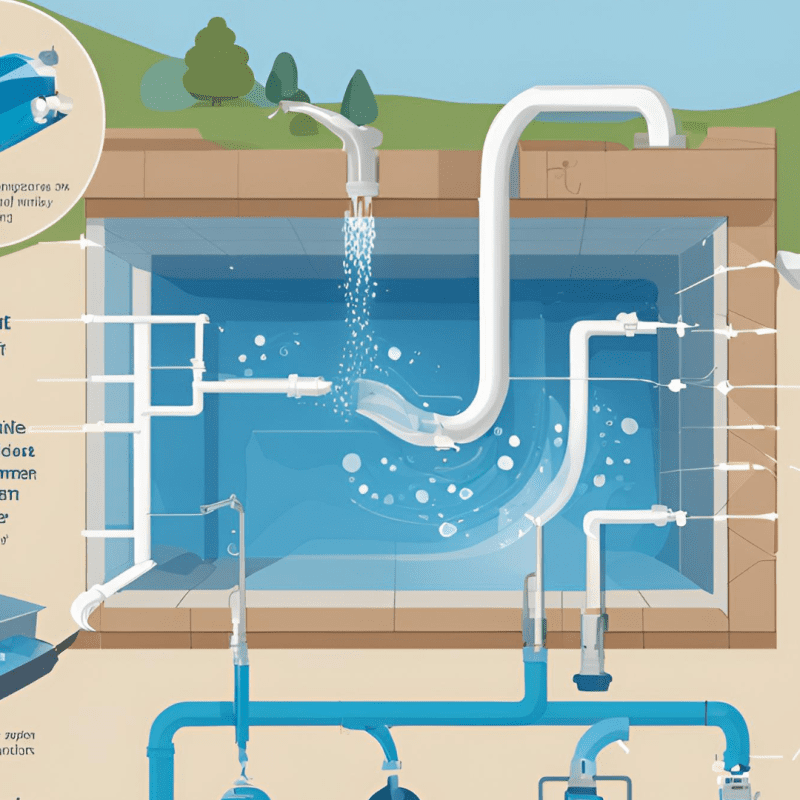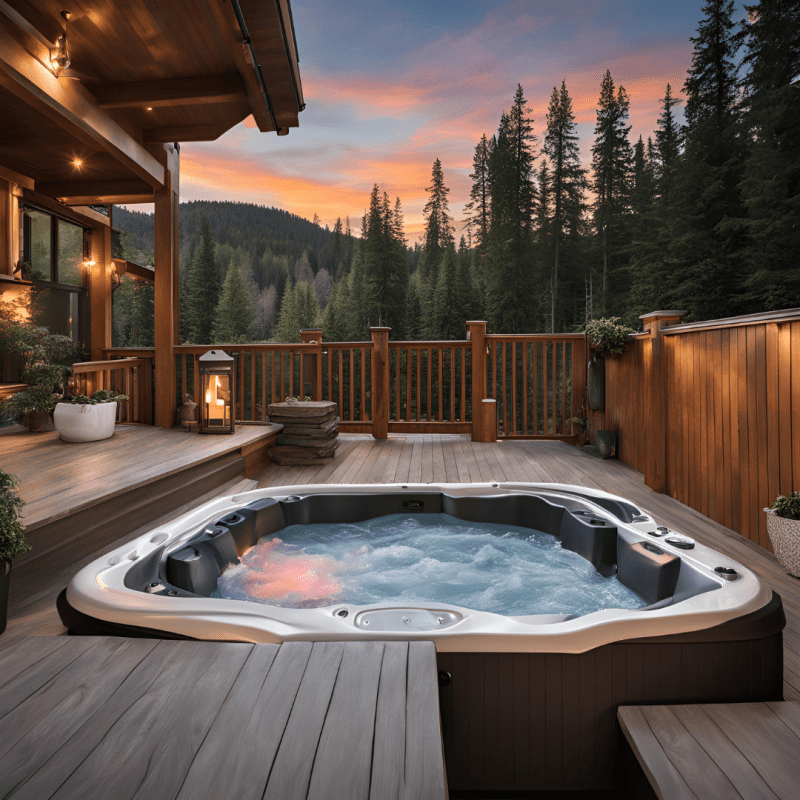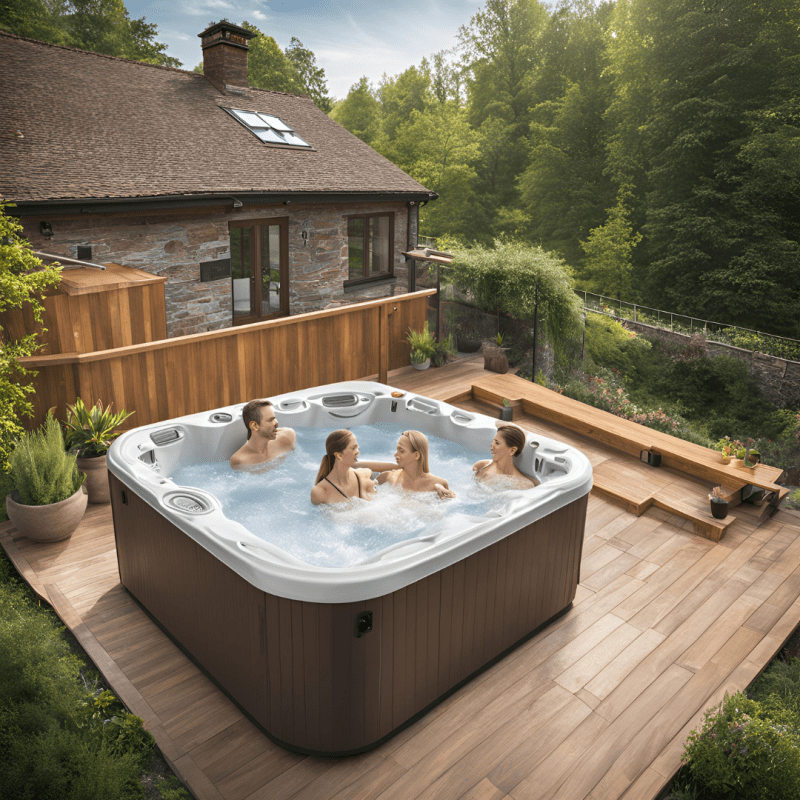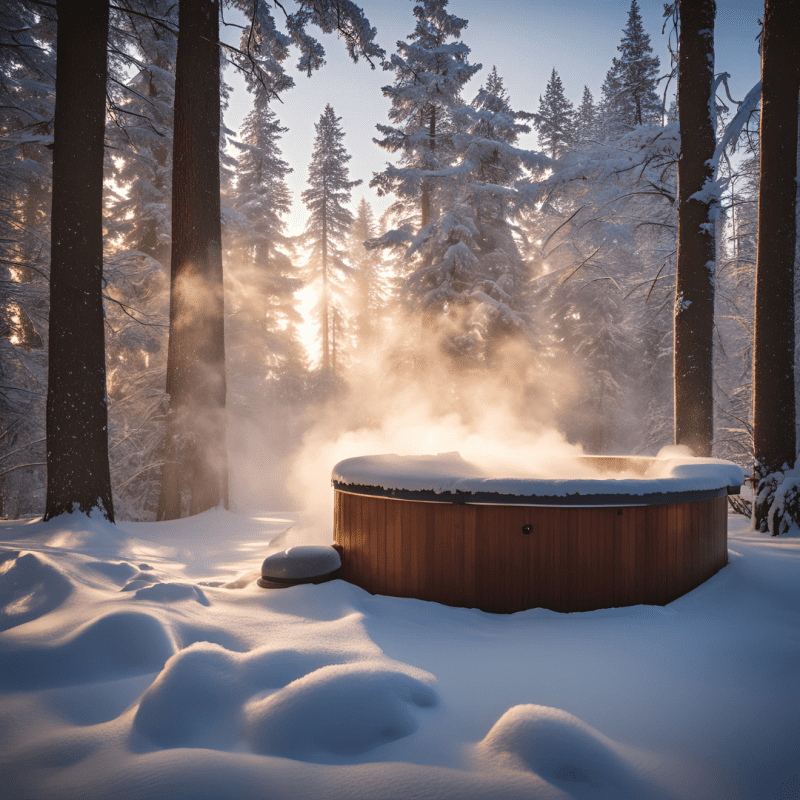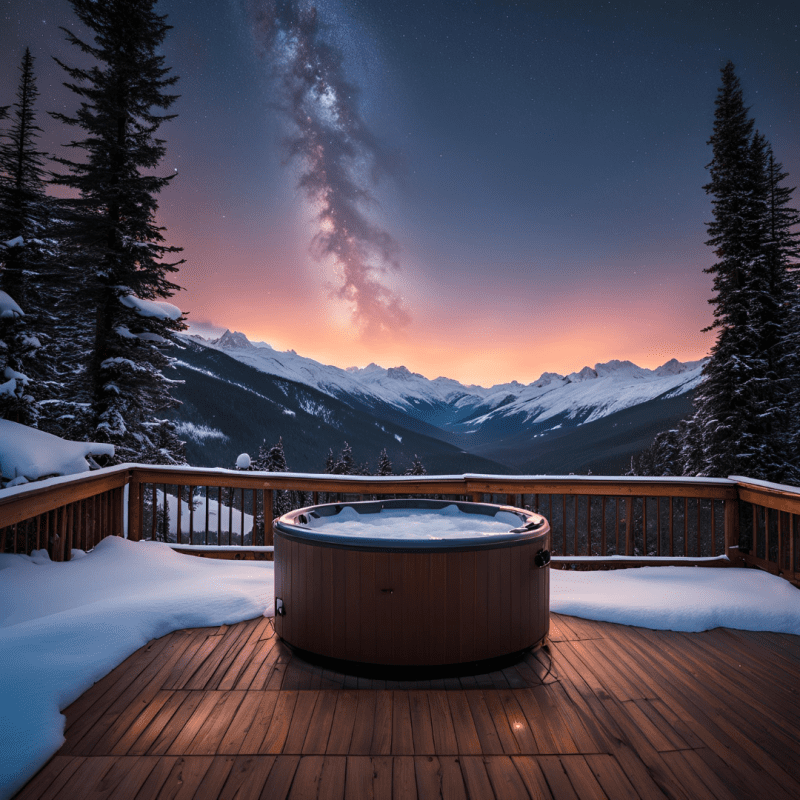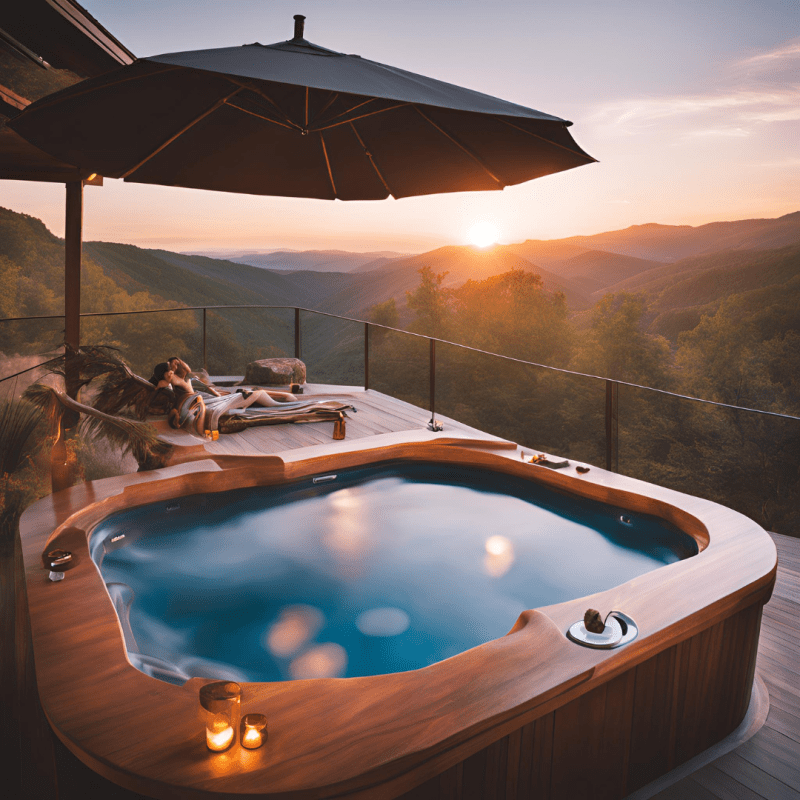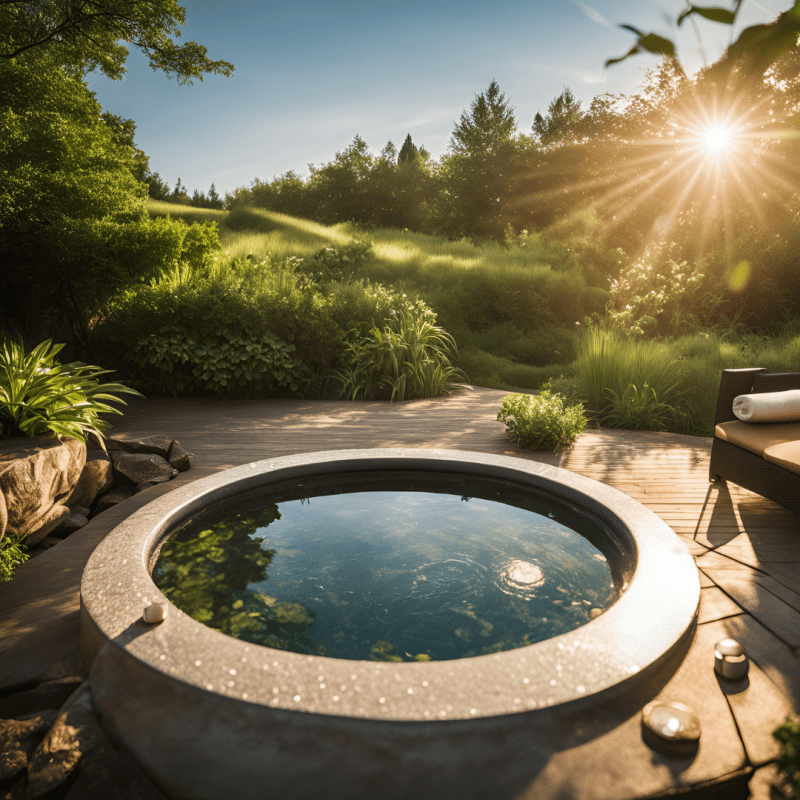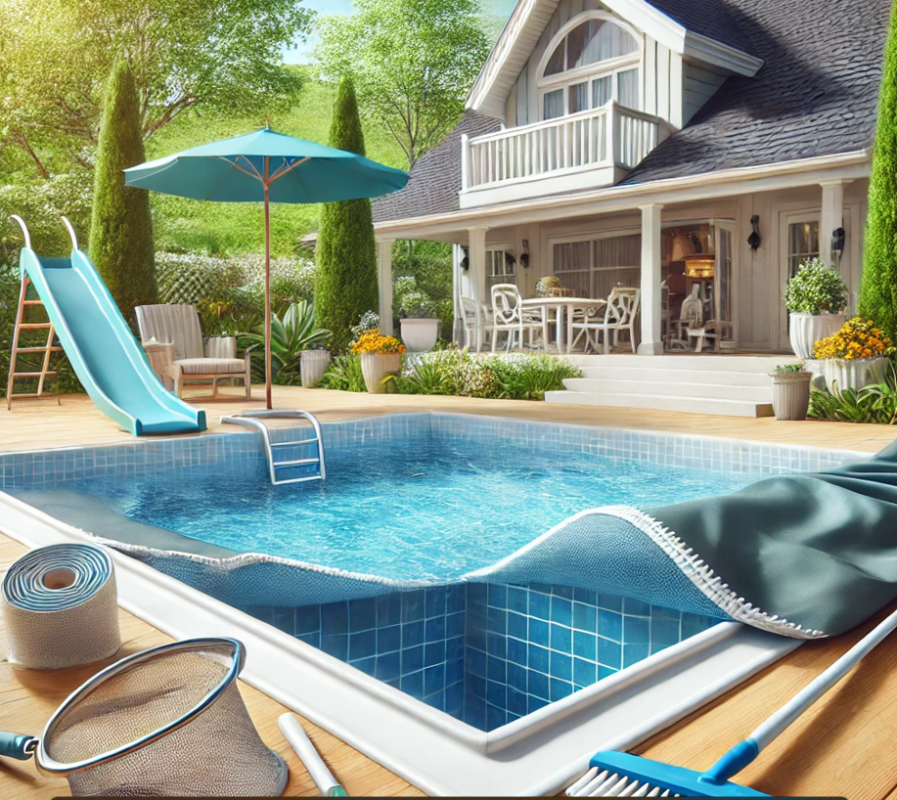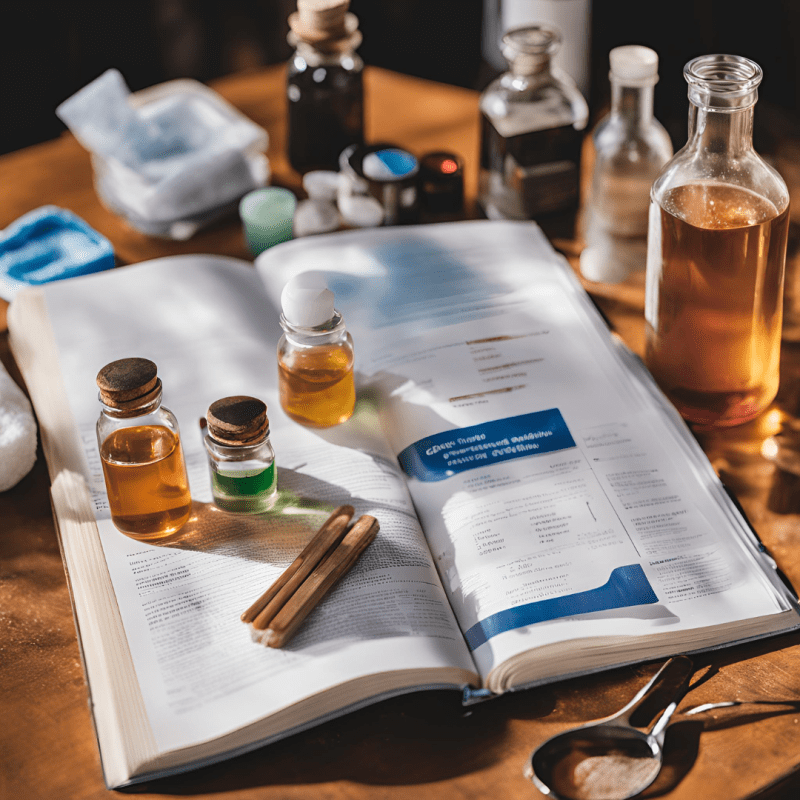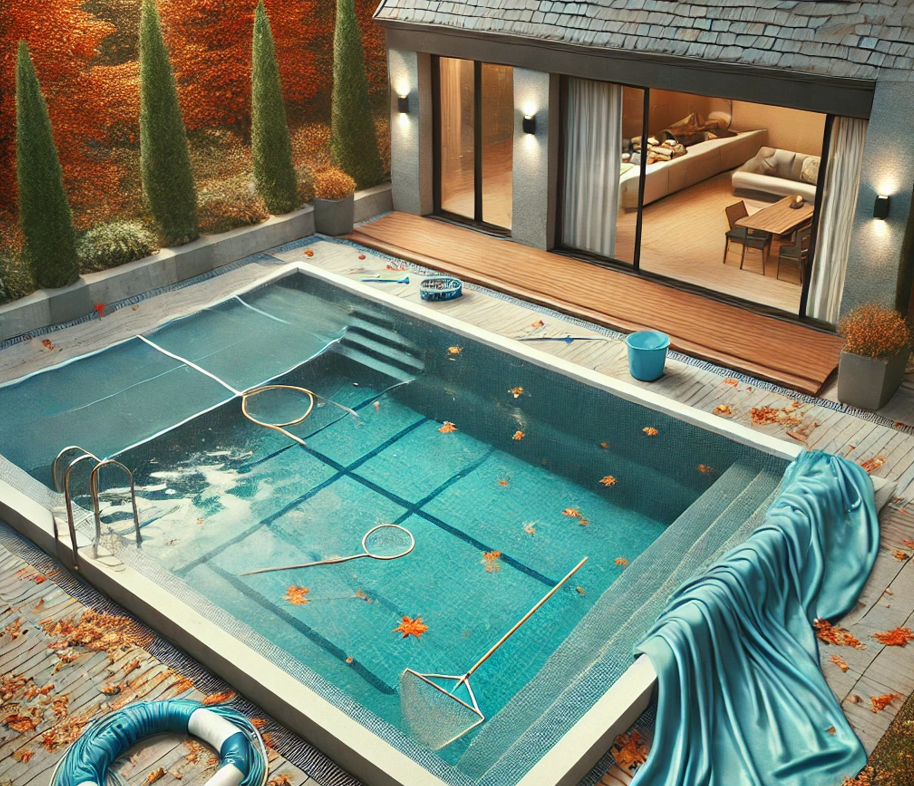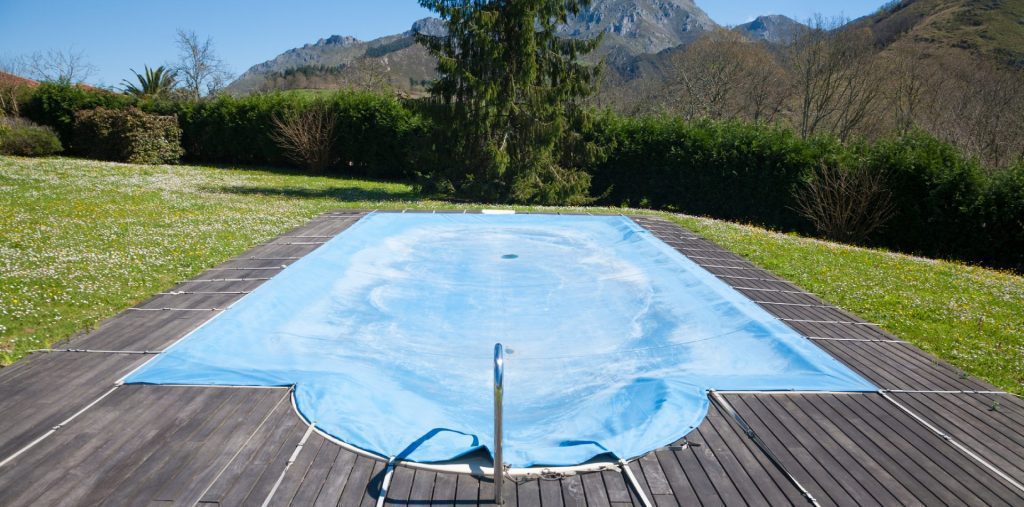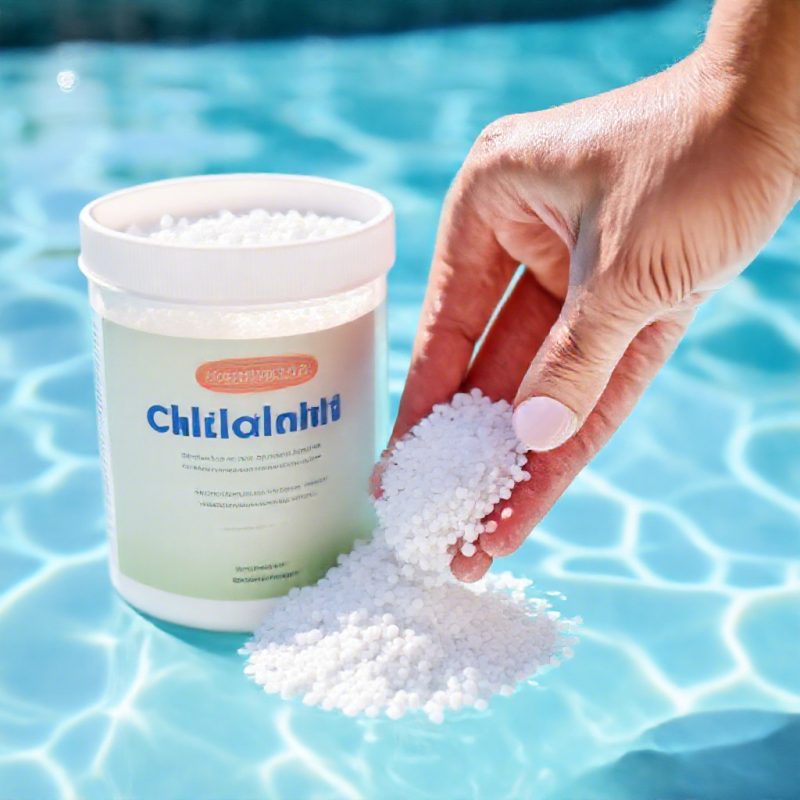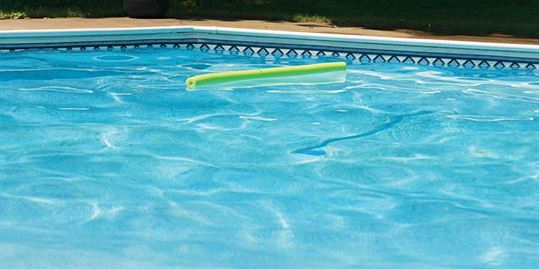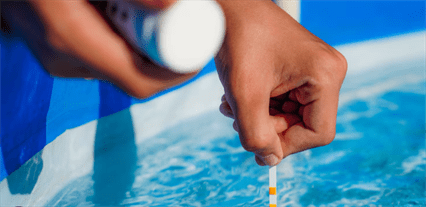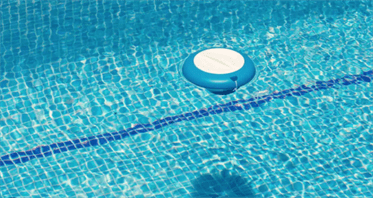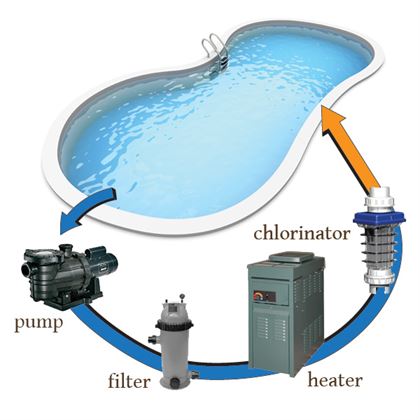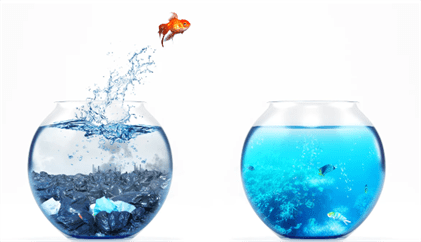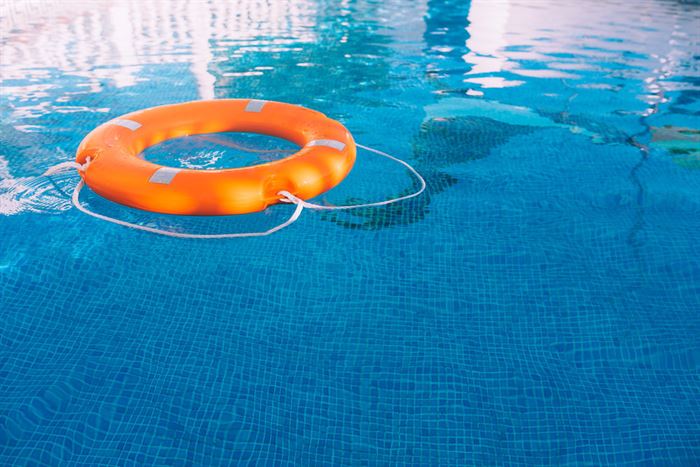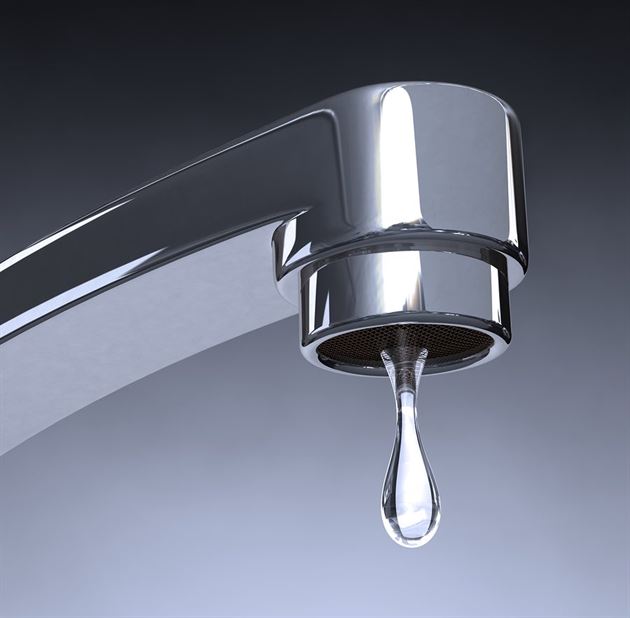Proper water chemistry maintenance stands as an essential responsibility for anyone who owns swimming pools. Your expertise about basic pool chemicals together with their purposes allows you to operate a clean and safe swimming pool environment. This article describes the essential pool chemicals needed for water balancing together with their proper usage techniques to sustain […]
Category Archives: Blogpool
Terms you need to know: Bathing Load: The number of bathers to the volume of water in a hot tub or pool. Clarifier: A chemical treatment that binds together tiny particles in the water, making them large enough to be caught by the filter. Evaporation: The process of water turning into vapor and escaping from […]
The document contains essential information about how to recognize and manage failed microbiological tests in hot tubs. The document presents reasons for hot tub contamination and minimum allowed bacterial concentrations and provides a full process for hot tub disinfection. Key Facts and Ideas: Pass/Fail Parameters: The document establishes clear acceptable levels for various bacteria including […]
Hot tub ownership provides luxurious relaxation yet demands proper water maintenance to achieve safe and balanced conditions. Water maintenance becomes essential because neglecting it results in cloudy water and unpleasant odors and skin irritation together with hot tub component damage. When you implement the correct procedures hot tub water maintenance becomes simple and enables complete […]
Hot Tub Maintenance: FAQs 1. How frequently do you need to clean the filters of your hot tub? Hot tub filters need to be cleaned on a regular basis to achieve clean and clear water results. BISHTA advises users to follow the following schedule for filter cleaning: Weekly: Turn off the hot tub power. Take […]
The arrival of winter season marks the ideal time to prepare your pool for seasonal closure. The proper winterization process protects pools from freezing temperatures while creating an easy spring reopening process. Follow these steps to properly winterize your pool for protection throughout the cold season. Why Winterizing Your Pool is Important The process of […]
This post summarises key water-saving tips for hot tub owners Key Themes: Environmental Responsibility: Reducing water consumption benefits the environment. Cost Savings: Reducing water consumption leads to lower water utility expenses. Preventative Maintenance: Hot tub care performed ahead of time prevents water waste while lowering future maintenance expenses. Important Ideas and Facts: A water meter […]
The correct circulation of water serves as an essential factor to achieve safe and clean swimming conditions. This article discusses the significance of water circulation in pool systems together with methods to enhance your circulation system. 1. Why Is Water Circulation Important? The maintenance of pools heavily depends on water circulation as a critical factor. […]
Hot Tub Security FAQ 1. Should I be concerned about hot tub security? Hot tub theft remains infrequent but possible mostly affecting inflatable hot tubs. It is necessary to implement protective measures for hot tub security because these products represent a significant financial investment. 2. What property security measures will effectively protect my hot tub […]
Questions What are three essential questions to ask a hot tub retailer before purchasing? Why is it dangerous to buy a hot tub from a non-reputable internet provider? What are the main distinctions between a self-contained hot tub and an in-ground spa? Describe the benefits of a swim spa and explain the difference between single-chamber […]
Questions: What is the safest way of taking children to hot tubs? Why is it important to shower before entering a hot tub? How should one handle hot tub toys when the tub is not in use? What is the maximum allowed water temperature for a hot tub? Which type of drinks is perfect for […]
Briefing Doc: Pool Chemistry and Testing Why Test Pool Water? Water testing is vital for the protection of bathers’ health, comfort, and cleanliness of the pool. Also, it is important in: Cleaning of the water Protection of the plant and the surrounding pool area. Controlling chemical usage Non testing of water can result in illnesses, […]
Hot tub accessories can elevate your relaxation time by adding essential items that enhance the experience. The following guide presents important hot tub accessories which improve your relaxation time in the tub. 1. Hot Tub Covers When protecting your investment you need a hot tub cover of superior quality above all else. An insulated cover […]
Hot tub parties serve as an excellent opportunity for people to enjoy quality time together. The combination of hot tub parties functions as an excellent choice for birthday celebrations as well as summer events and informal meetups because it generates lasting memories. The following guide provides essential information to organize a hot tub party which […]
Hot tubs function beyond being luxurious items because they provide multiple health benefits to regular users. Hot tub therapy delivers therapeutic benefits which improve both physical health through circulation enhancement and mental health by providing stress relief. Hot tub use regularly helps patients with muscle pain and stress and sleep issues experience better health outcomes. […]
The ownership of hot tubs provides an excellent opportunity for relaxation and relaxation but requires regular maintenance to achieve safe and clean water conditions. This guide provides essential information to maintain your hot tub properly and achieve crystal-clear water throughout the entire year whether you are a beginner or an experienced owner. Hot Tub Maintenance […]
The process of maintaining proper chlorine concentration remains vital for keeping swimming pools and hot tubs both safe and clean. The sanitizing industry widely uses chlorine granules because they work well and are straightforward to apply. This manual offers complete information about suitable chlorine granule measurements for different water quantities and installation types to help […]
Questions Which are the two major objectives of ensuring that pool and spa water has the right chemical composition? Why is bromine best suited for use in indoor pools or spas only? Describe the distinction between sanitizers and oxidizers in water quality preservation. Why is breakpoint chlorination crucial and what does it entail? What happens […]
A hot tub purchase represents a major financial commitment which enhances lifestyle quality yet choosing the correct model among numerous options proves challenging. This guide provides essential information to help you choose the perfect hot tub whether you want relaxation after work or family time or guest entertainment. Step 1: Determine Your Needs and Preferences […]
Quiz What are two methods for determining the volume of water in your hot tub? Hot tubs require proper water temperature maintenance because it affects both user comfort and safety. How does free chlorine differ from combined chlorine in water chemistry? Why do you need to shock your hot tub water? Why do people use […]
The Cost-Effective Guide to Operating Your Swimming Pool and Hot Tub The home ownership of swimming pools and hot tubs creates both relaxation and enjoyable moments for homeowners. Homeownership of swimming pools or hot tubs comes with recurring costs for maintenance. By implementing basic tips and using optimal methods you can use your pool and […]
Hot tubs present serious safety concerns for children that demand proper supervision and adherence to safety protocols. Hot tubs serve as a luxurious home and resort feature which enables family members to experience relaxation time together. The use of hot tubs demands specific safety precautions when children are involved. The guide provides complete information about […]
Hot tub ownership creates both relaxation and happiness while requiring owners to protect all users from potential harm. Important safety precautions exist to prevent accidents from happening. This guide provides complete information about hot tub water safety and electrical systems and maintenance practices to help UK owners achieve a safe hot tub experience. Key Safety […]
Regular swimming pool cleaning creates the necessary conditions for backyard enjoyment. The improper maintenance of pools creates both unsightly conditions and dangerous environments for bacterial and algae growth. The maintenance of pool cleanliness demands scheduled cleaning routines and balanced water chemistry management. Read this complete guide that teaches you effective pool cleaning methods for achieving […]
1. Introduction & Planning Why Choose a Liner Pool? People who want pool ownership without worrying about construction costs choose liner pools because they are affordable and accessible. They are durable and easy to maintain: The introduction of liner pools enables more people to purchase their own pool. Do I Need Professional Assistance for Installation? […]
New hot tub owners face difficulty understanding the various maintenance chemicals because of their overwhelming nature. The beginner’s guide presents a clear explanation of crucial hot tub chemicals and their functions as well as effective usage methods. 1. The Importance of Hot Tub Chemicals The proper use of hot tub chemicals determines water quality maintenance […]
Hot tubs offer relaxation through their warm jets while aromatherapy provides added benefits for mental and physical health. Hot tub relaxation becomes a complete experience when aromatherapy is used with its warm water and soothing jet massage. This article will analyze the relaxation benefits of hot tub aromatherapy while discussing appropriate essential oil choices and […]
Hot tub ownership in the UK remains a cherished dream but similar to all important purchases it needs consistent care to maintain its operational performance. The different seasons present distinctive difficulties because people use hot tubs most often in summer but must endure freezing temperatures during winter. This guide explains how UK hot tub owners […]
A comprehensive overview of chlorine as a swimming pool and hot tub solution The maintenance of pools and hot tubs depends on chlorine as an essential substance which makes water both safe and clean for swimmers. This resource provides complete information about chlorine use in swimming pools and hot tubs including its advantages together with […]
Hot tub placement stands as the deciding factor for achieving the perfect relaxation experience. Although hot tub relaxation appears perfect at first glance people should focus equally on selecting an appropriate installation location. This guide explains all essential factors to evaluate before installing your hot tub to achieve an optimal position for both use and […]
Regular maintenance requires both detailed work and consistent care for your pool. The following post presents crucial pool maintenance practices which you should follow to maintain your pool at its best condition. 1. Do: Test Water Chemistry Regularly Why It’s Important: Regular testing ensures your water remains balanced, preventing algae growth and skin irritation. How […]
Bromine functions as a very common sanitizer in hot tubs which most people prefer because it is both reliable and works well. This post describes the advantages of bromine, describes its use, and gives helpful hints for maintaining hot tub water cleanliness and safety. 1. Why Use Bromine? Bromine is a sanitizer that works […]
The UK provides an excellent opportunity to own a hot tub which allows homeowners to create a personal relaxation space at home. The perfect way to rest after work hours is through hot tubs which also deliver healing effects to muscles and joints. Hot tub ownership requires knowledge of all responsibilities along with costs and […]
People who care about the environment now explore sustainable pool care methods for their swimming pools. This article provides environmentally friendly pool care methods which both protect nature and maintain a clean swimming pool. 1. Use Natural Pool Sanitizers Select natural pool sanitizers because they replace traditional chlorine-based sanitizers: A saltwater pool system generates chlorine […]
A properly cared for pool serves more than just a comfort purpose because it represents a fundamental requirement for health safety and extended lifespan of your pool system. A regular maintenance routine ensures pool water remains clear while stopping algae growth and avoids future costly repairs. The following guide provides essential year-round maintenance steps for […]
The process of replacing hot tub water stands as an important maintenance practice which many users tend to neglect. The following blog post investigates the necessity of periodic water replacements and presents guidelines about replacement intervals as well as the entire draining-refilling process for your hot tub. 1. Why Change Hot Tub Water? Changing your […]
Regular maintenance of a pool schedule becomes crucial for maintaining cleanliness and safety and providing enjoyable swimming sessions throughout the season. This article presents a complete maintenance plan which outlines daily and weekly and monthly operational procedures. 1. Daily Maintenance Tasks Regular daily cleaning operations help maintain water clarity and stop the accumulation of pool […]
Beautiful landscaping of your pool area results in the creation of a peaceful backyard oasis. This article presents different landscaping designs which will help improve pool appearance. 1. Tropical Plants Tropical plants will establish a welcoming environment surrounding your pool through their lush foliage: The installation of palm trees brings tropical aesthetics to any area. […]
Pool maintenance is associated with numerous false beliefs that people believe. Such false beliefs cause improper care and wasted time together with avoidable expenses. You will prevent many headaches and achieve optimal pool condition by understanding actual pool care principles. The following post debunks popular swimming pool myths and offers essential information for effective pool […]
Hot tub sanitization relies heavily on chlorine as a primary disinfectant agent. The following article examines chlorine’s critical role while explaining its proper application along with effective methods for maintaining safe hot tub water conditions. 1. Why Use Chlorine? Hot tubs depend on chlorine to sanitize bacteria viruses and other dangerous pathogens effectively as a […]
Pool ownership presents a high-end experience yet safety needs to remain the top priority. Pool safety measures serve to avoid accidents and injuries when you utilize your pool space for family events or personal relaxation. Pool safety needs immediate attention because drowning stands as one of the main causes of accidental deaths that particularly affect […]
New pool owners need to acquire necessary supplies to establish a clean and safe swimming area. This guide explains all essential pool supplies together with their functions so that new pool owners can properly prepare. 1. Basic Pool Maintenance Tools All pool owners need to keep these fundamental maintenance tools in their inventory. A skimmer […]
The following points summarize what this article teaches readers: The article presents fundamental electrical aspects that need evaluation before placing a hot tub installation. What makes a site survey essential for hot tub delivery preparation? What is calcium hardness and why does hot tub water need it and what are its proper levels? Daily hot […]
Hot Tub Water Clarity FAQ Q1: Hot tub water appears cloudy due to what reason? Hot tub water appears cloudy because tiny particles exist in the water which filters cannot capture. The main culprits are: Hot tub water contains a mix of dead skin cells together with body oils and sweat as well as cosmetics […]
Hot Tub Water Conservation FAQ 1. What reason exists to save water for your hot tub maintenance? Environmental sustainability and cost reduction benefit from water conservation practices. Your responsible water consumption supports environmentally friendly operations while saving you money on your utility bills. 2. What method allows me to monitor the water usage of my […]
Saltwater pools have become more popular due to their low chlorine levels and decreased chemical usage. The following post includes tips for proper maintenance of saltwater pools. 1. Test Water Chemistry Regularly Testing the water chemistry remains essential for maintaining proper saltwater pool balance. Recommended Levels: pH: 7.2 – 7.6 Alkalinity: 80 – 120 ppm […]
Hot Tub Water Chemistry and Maintenance Some questions you might have: Explain the function of hot tub filters and explain why their maintenance is essential. What is the recommended frequency for cleaning hot tub filters, and the procedures for weekly and monthly cleaning? Explain the role of pH balance in hot tub water, explain the […]
The approaching season requires you to prepare your pool for winter closure. Winterizing your pool correctly ensures protection from freezing temperatures together with debris and potential equipment damage that occurs during colder months. A proper pool closure method during winter prevents expensive springtime repair needs so it is essential to follow the correct procedure. The […]
Key Terms CCTV stands for Closed-Circuit Television and it is a system of cameras that is used for surveillance and security purposes. Data Protection Act: This is the UK law that is used to regulate how personal data is collected, stored, and used, and it includes images from CCTV. GPS tracker: This is a device […]
What you need to know: The proper care and cleanliness of recreational water requires both sanitation measures (eliminating bacteria and algae) and water balance maintenance (controlling pH and alkalinity and hardness and total dissolved solids levels). The common sanitizers used in the water include chlorine and bromine. The chlorination system functions as both sanitizer and […]
Spring season arrival brings an end to winter chill which requires pools to become operational for warmer weather days. A structured approach enables people to handle the pool opening process effectively without experiencing overwhelming stress. The process demands both patience and thoroughness to establish clean and balanced conditions which will enable new season enjoyment. The […]
Pool water cleanliness and transparency depend on an operational filtration system. This article details different pool filtration systems along with their operational methods and maintenance recommendations for best results. 1. Types of Pool Filtration Systems Pool filtration systems consist of three types which include sand filters together with cartridge filters and diatomaceous earth (DE) filters. […]
What you need to know Hot tubs and swim spas both deliver relaxation together with hydrotherapy and opportunities to connect with others while swim spas give fitness advantages. Hot tubs and swim spas deliver relaxation benefits as well as hydrotherapy effects alongside social interaction opportunities. Swim spas offer both relaxation and exercise functions along with […]
Some helpful terms: Alkalinity is the ability of water to resist pH changes. Bromine: A halogen disinfectant, often used in hot tubs and spas due to its effectiveness at higher temperatures. Calcium Hardness: The amount of dissolved calcium in the water. Chlorine: The most commonly used pool disinfectant; exists as free chlorine (available for disinfection) […]
Total alkalinity is very important to the water chemistry of your hot tub. By understanding alkalinity, and how it affects pH, you will be able to provide yourself with a safe and enjoyable experience. This blog post will go over what alkalinity is, what the ideal levels are, how to test and adjust it, and […]
Glossary of Key Terms Datum Point: A reference point that establishes the final height of the pool surface and is usually set at the coping stone level. Hopper Pool: A pool with a sloping floor that goes from shallow to deep, forming a hopper shape. Constant Slope Pool: A pool with a gradual slope from […]
Winter pool maintenance plays an essential role in protecting your pool investment while allowing for easy spring reopening. The following post examines pool winterization importance followed by step-by-step instructions for winter pool closing. 1. Why Winterize Your Pool? The process of winterizing your pool safeguards it from freezing temperature damage along with preventing possible winter […]
1. How do I protect the visitors at my hot tub party? Answer: Safety is paramount! Here’s how to keep everyone happy and healthy: Limit the time people spend soaking in the hot tub to 15 minutes. Hydration is key: Provide plenty of non-alcoholic drinks to keep guests hydrated. No glass allowed: Use only non-glass […]
Monitoring your pool equipment regularly helps you avoid expensive maintenance and maintain equipment performance. This article examines typical pool equipment malfunctions as well as methods to detect problems before they develop. 1. Unusual Noises from the Pump The pump will produce abnormal sounds when it makes grinding noises or produces high-pitched sounds or rattles because […]
Our Spotify podcast explores all aspects of hot tubs and swimming pools. The blog offers guidance to consumers about various aspects of owning and using a hot tub. The blog covers topics including buying a hot tub, installing it, maintaining water quality, choosing the right location, preventing and treating common issues, and hosting hot tub […]
Hot tub safety and enjoyment depends heavily on maintaining proper pH levels in the water. This article investigates pH importance along with testing methods and adjustment procedures while explaining why incorrect pH levels create problems for hot tub systems and bathers. 1. What is pH? The pH scale evaluates water acidity or alkalinity through measurements […]
Hot tub users need to maintain proper water chemistry to achieve safe relaxation time. This detailed guide provides an introduction to hot tub chemistry fundamentals together with explanations of importance along with maintenance instructions. 1. Why Water Chemistry Matters Various essential reasons make water chemistry maintenance critical. Safety and health risks occur when the water […]
Pool ownership brings happiness during warmer months but maintaining perfect water chemistry throughout the entire year presents a difficult task. Your pool will rapidly become unsafe and unattractive when water chemistry values deviate from proper ranges. The following guide provides step-by-step instructions to maintain year-round balanced pool water conditions that result in safe and clear […]
Every pool owner must perform winter preparation for their pool. Protecting your pool during the upcoming cold season through proper winter preparation helps shield it from extreme weather conditions and minimizes possible harm while making springtime pool openings less complicated. A short period of planning together with proper steps will make pool closing both efficient […]
The appearance of cloudy water during pool time creates an immediate disappointment. The appearance creates an uninviting atmosphere and unappealing conditions which may indicate unsafe swimming conditions in your pool. Pool owners commonly experience cloudy water because of chemical imbalances and inadequate filtration systems and environmental contaminants. You can achieve crystal clear pool water through […]
The arrival of warmer temperatures combined with extended daylight hours signals the perfect time to banish winter sadness and begin sun-filled enjoyment. The process of opening your swimming pool after winter requires some effort but proper knowledge combined with effort will produce a sparkling pool for summer days. This guide presents the fundamental steps for […]
Chlorine granules are trusted for maintaining the cleanliness and safety of pool and hot tub water. This guide examines the types of chlorine granules, their applications, times and places of use, and where to purchase them for optimal outcomes in water care practices. What Are Chlorine Granules Used For? Chlorine granules serve mainly for sanitizing […]
The practice of pool maintenance should be viewed as a happy adventure instead of an unpleasant chore. Your mastery of filtration and sanitization and pH levels and total alkalinity and calcium hardness will establish a sparkling rejuvenating aquatic sanctuary. Your pool will shine like a gem when you test regularly and clean mindfully and perform […]
The condition of your pool depends heavily on calcium hardness levels which serve as a critical measurement. The ideal range of 200 to 400 ppm ensures your pool remains free from stains and cloudiness while preventing scale formation. Through proper treatment with muriatic acid or sodium bisulfate you can maintain equipment and surface integrity to […]
The pool requires a balanced pH level in its aqueous environment. The pH range between 7.2 and 7.8 protects both pool users and maintains the structural condition of the pool. The pool’s structural components will corrode while swimmer comfort suffers when pH levels become unbalanced. Regular testing combined with strategic chemical adjustments will help you […]
Total alkalinity functions as an unsung hero in pool water management because people commonly confuse it with pH while it maintains equilibrium and prevents pH swings. The water balance depends heavily on this factor because it protects surfaces from damage while maintaining stable water quality. The guardian remains under control through regular testing and appropriate […]
A healthy pool depends on proper disinfection for its survival. The art of maintaining optimal disinfection levels together with efficient circulation and filtration will lead you to a bacteria and algae-free paradise. Chlorine stands as the standard choice but bromine and ozone and saltwater chlorinators provide alternative solutions that match different pool requirements.
A proper filtration system is required to create an aquatic sanctuary because it protects both you and your family members from harmful contaminants. The filtering mechanisms use multiple methods including particle trapping and innovative flocculation techniques to maintain water purity. Sand filtration stands as the most common system yet cartridge and DE filters provide specialized […]
The key to maintaining perfectly clear swimming pool water becomes accessible through this knowledge. The task of preserving your swimming pool’s crystal clarity while removing debris appears overwhelming at first but you should remain calm. The right combination of knowledge and tools and maintenance strategies will turn pool maintenance into a simple process. This article […]
Every pool owner worries about the contents hidden under winter pool covers during springtime because dark green algae pools stand as the worst-case scenario. You can transform a pool from murky green algae into clear blue water through appropriate chemical applications. The following procedures are implemented by our team for this situation at our location: […]
The water disinfectant Chlorine Tablets effectively eliminates most viruses and bacteria that exist in water. People use these tablets to purify drinking water. The water purification tablets function to disinfect water which people use for cleaning and washing their fruits and vegetables. Water chlorination stands as a globally recognized method to make water safe for […]
Pool ownership brings joy but brings along various problems for pool owners. Pool owners can stop worrying about pool problems because such issues occur naturally in pool maintenance. A pool requires proper chemical balance to stay safe while remaining sparkling. The following list shows common pool issues which will help you recognize potential problems […]
The world’s largest residential swimming pool exists in the Houston metropolitan area. The world’s largest residential pool can be found by taking exit 59 South towards El Campo in Texas. The world’s largest residential pool sits between agricultural fields and grazing pastures and has become the main attraction of the small community. The pool resembles […]
People commonly view swimming pools as large containers filled with chemical solution. The reality shows that tap water contains more chlorine than pool water because tap water receives permission to maintain higher chlorine concentrations. Pool water contains no more chlorine than regular tap water because pool chemicals need to maintain optimal concentration levels. Check for algae on […]
- 1
- 2




